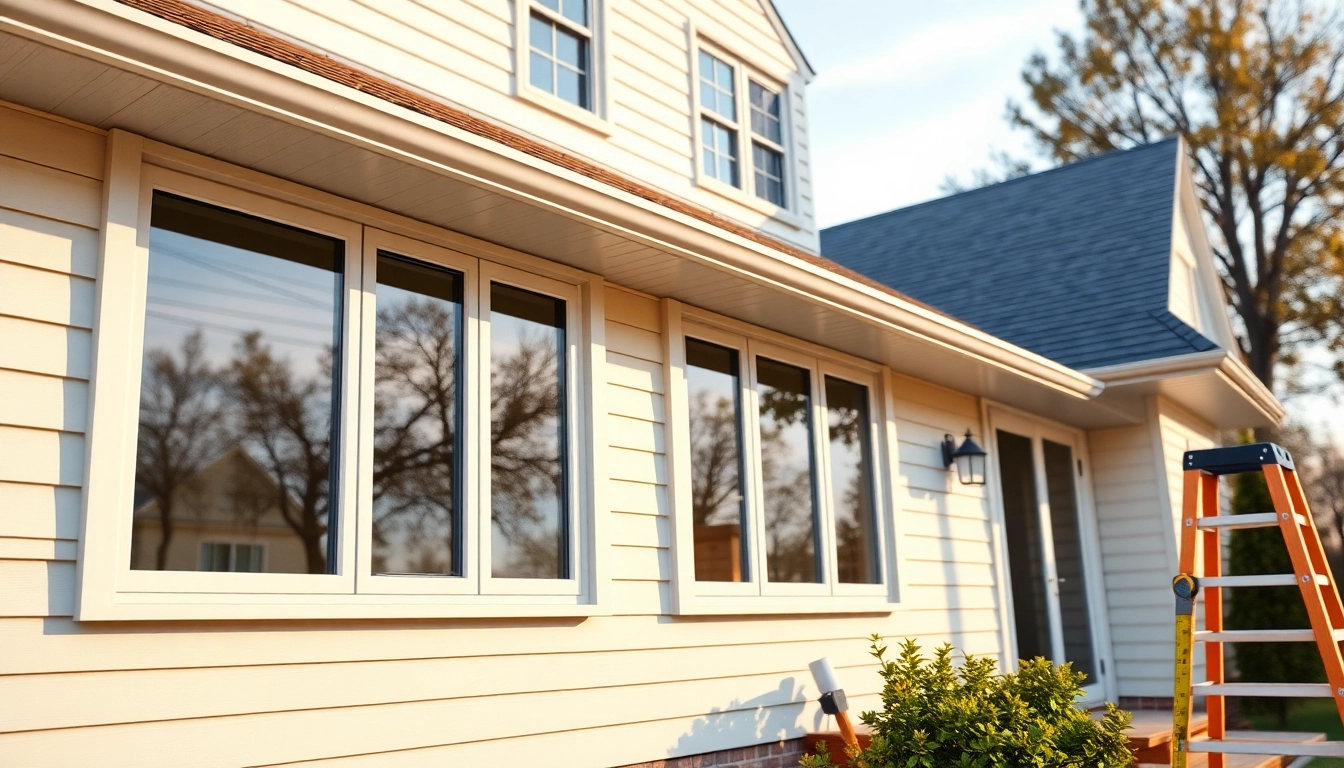The market for window replacement has grown beyond traditional contractors, bringing a mix of national brands and local specialists into homeowners’ decision streams. Homeowners pursue energy efficiency, enhanced comfort, and elevated curb appeal, and the choice often hinges on a provider’s capacity across product selection, installation readiness, and after-sales support.
To navigate this landscape, consider evaluating the full value proposition of window replacement companies across product quality, installation capability, warranties, and service. window replacement companies deliver these elements in different combinations, so a structured comparison is essential.
Market Overview for Window Replacement Companies
What window replacement companies offer
Most providers offer a spectrum of products and services designed to upgrade performance and aesthetics. Expect a mix of window styles (casement, double-hung, sliding), frame materials (vinyl, wood, fiberglass), exterior doors, and sometimes siding. In addition to installation, reputable firms provide on-site measurements, project management, financing options, and post-install support such as routine inspections or replacements under warranty.
Franchise vs local window replacement companies: pros and cons
Franchise networks bring standardized processes, broad supplier relationships, and predictable warranties, which can simplify budgeting and ensure consistency across multiple projects. Local specialists often deliver deeper regional knowledge, quicker response times, and personalized service, sometimes with lower price friction. The trade-off is that local firms may vary more in process discipline, whereas franchises typically maintain uniform sales pitches and installation protocols.
Cost drivers in window replacement projects
Project costs hinge on three broad factors: materials, labor, and site work. Material choice (vinyl vs wood vs fiberglass), glass upgrades (impact resistance, low-E coatings, gas fills), and frame construction affect the base price. Labor costs depend on access, crew size, and the complexity of removing old units and sealing new installations. Additional items such as permits, trims, sill replacements, and cleanup can influence the final quote, often more than people anticipate.
Assessing Providers and Proposals for Window Replacement
Evaluating quotes from window replacement companies
When reviewing proposals, compare the exact scope of work, the brands and models cited, and inclusions such as removal of old windows, disposal, flashing, sealants, and interior finishes. Insist on on-site measurements and a written specification for each window. Be wary of online-only estimates or quotes that omit installation details, as these are common red flags for undervalued bids.
Warranty and after-sales service expectations for window replacement
Clarify both product warranties (frame, sash, glass) and installation warranties (labor, workmanship). A robust package typically covers the full window system for 10–20 years or more, with shorter coverage for cosmetic components. Inquire about service response times, coverage for weather-induced issues, and whether warranties transfer if you sell your home.
Red flags when reviewing proposals from window replacement companies
Avoid proposals with vague specs, unusually low prices, or pressure to sign immediately. Watch for lack of local references, missing permits, or installers with limited licensing. If a firm emphasizes discounts over quality, or cannot provide a clear project timeline, consider alternative bids.
Materials and Installation for Window Replacement Projects
Choosing window materials: vinyl, wood, fiberglass for window replacement projects
Vinyl offers cost-effectiveness and low maintenance, making it popular for many homes. Wood provides warmth and a traditional look but requires ongoing maintenance. Fiberglass combines durability with relatively low upkeep and can be engineered for higher performance. Your choice should reflect climate, maintenance tolerance, and architectural style, balanced against budget and long-term value.
Energy efficiency ratings and certifications for window replacement
Energy performance hinges on a combination of U-factor, solar heat gain coefficient (SHGC), air leakage, and visible transmittance. Look for NFRC ratings and ENERGY STAR certification to quantify performance. Higher-performance glazing reduces heating and cooling loads, contributing to long-term savings and comfort, especially in extreme climates.
Installation steps and site preparation for window replacement projects
Quality installation typically follows precise steps: protect the interior, remove the existing units, prepare and flash the opening, install the new frame with shims and sealing, secure to the casing, and finish with interior and exterior trim. Proper weather sealing and flashing prevent leaks, while careful waste disposal and post-install cleanup maintain home cleanliness and safety during the project.
ROI, Maintenance, and Longevity for Window Replacement
ROI and energy savings from window replacement projects
Energy savings depend on climate, window performance, and home efficiency. In many markets, well-installed high-performance windows yield meaningful reductions in heating and cooling costs and can enhance resale value, particularly for historically modernized homes or those with poor existing performance.
Care and maintenance to extend window replacement longevity
Regular cleaning, seal inspection, and occasional repaints or caulking help sustain performance. Address condensation and ensure seals remain intact to prevent moisture intrusion. Trim and hardware upkeep prolongs the life of both vinyl and wood-frame systems, preserving both appearance and function.
Warranty options and service plans for window replacement
Consider service plans that offer periodic inspections, seal checks, and rapid part replacement. Some providers offer extended warranties or maintenance programs that can be purchased upfront or bundled into financing, providing protection against unexpected costs over time.
Getting Started: Planning Your Window Replacement
Questions to ask window replacement companies during a consultation
Ask about product options, expected performance, installation timelines, energy savings estimates, and references. Inquire about permit handling, debris management, and whether the firm offers in-house financing or partnerships with lenders. Request a detailed, itemized proposal for apples-to-apples comparison.
What to expect on install day and aftercare for window replacement
On installation day, plan for access to electrical outlets, protection of floors, and a clear work area. Aftercare typically includes a walkthrough, explanation of any warranty coverage, and maintenance recommendations. A reputable contractor will provide contact details for post-install support should issues arise.
Timeline, budgeting, and next steps for replacement windows
Develop a realistic timeline that accounts for lead times, ordering, and weather. Build a budget that includes contingencies for delays or add-ons. After selecting a provider, secure financing, confirm the project scope, and schedule pre-install inspections as needed.
